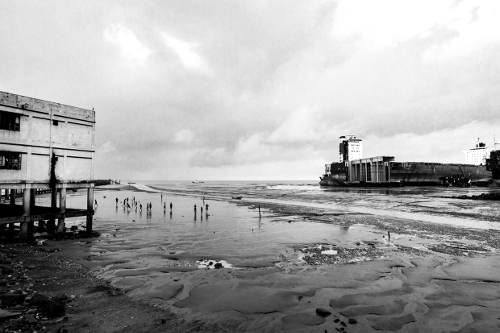The Bangladesh High Court yesterday issued a contempt rule asking 14 Government officials and the president of the Bangladesh Ship Breakers Association (BSBA) to explain why they have not implemented the Court’s judgement dating March 2009. The Court now demands arguments from the respondents as to why they should not be held responsible for contempt of the court’s rulings and “for deliberately and persistently ignoring safety of the workers and safety and integrity of the environment”. The Government was also meant to form an independent committee for the impartial supervision of the shipbreaking activities. The Court decision is the result of a contempt petition submitted by the Bangladesh Environmental Lawyers Association (BELA), the Platform member organisation that has been fighting in the courts against the shipbreaking industry’s violation of the law since 2003.

BELA has also asked the Court to suspend the activities of 42 shipbreaking yards. In the case of 37 yards, BELA has accused the companies of unsafe working conditions resulting in accidents and deaths, and for 7 yards BELA has provided information on how these companies violate the requirements for their environmental clearances. BELA is gathering more evidence so the number of yards to be closed is likely to raise even further.

In March 2009, the High Court had ruled that the Government is to set up a committee to ensure the impartial supervision of the shipbreaking industry. The Court also found that the shipbreaking yards did not hold the necessary environmental clearance to operate. As a consequence, the yards were temporarily shut down. The Court demanded that the Government comply with the requirements under the Basel Convention on the Control of Transboundary Movements of Hazardous Wastes and their Disposal. This included the respect for Prior Informed Consent (PIC), that is, the approval by Bangladesh of the import of ships based on the amount of toxics on board the end-of-life vessels.
The political clout of the shipbreaking industry, amongst them members of Parliament and other powerful politicians as well as some of the most influential industrialists in the country, managed hastily issued environmental clearances for their yards. For the import of end-of-life vessels to Bangladesh, the authorities blindly accept fake certificates stating that all the old ships are free of hazardous waste. The authorities never ask anyone to follow the procedure of Prior Informed Consent. The independent Committee, which according to the Court should also include non-government organisations and labour unions, has never been made functional – thus, there is no impartial supervision of the industry. BELA argues that at least 93 workers have died since the 2009 Court order. All this has passed without consequences.
Both the shipbreaking industry and the Government of Bangladesh are now asked to give account of their actions. If they fail to produce sufficient arguments, responsible persons are likely to be sentenced and yards may be closed down.
Click here to access The Daily Star's article covering the issue.

Workers without personal protective equipment, Chittagong shipyards, 2014 Copyrights: NGO Shipbreaking Platform, 2014




